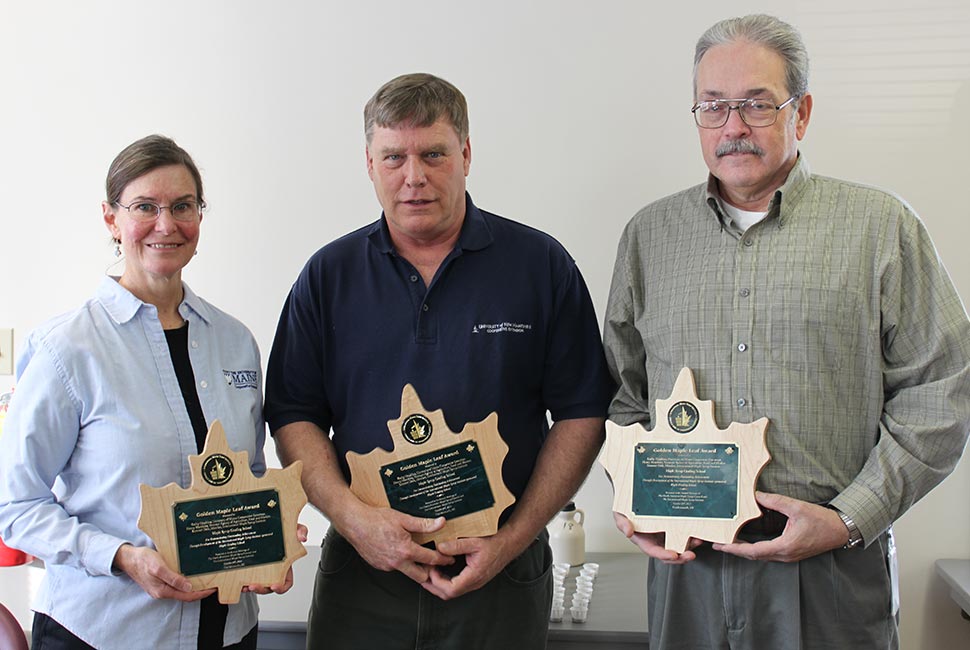History of the School
The International Maple Syrup Institute Maple Grading School began as the New England Maple Grading School and was the brainchild of Henry Marckres, Vermont Agency of Agriculture, Food and Markets; Sumner Dole, University of New Hampshire Cooperative Extension; and Kathy Hopkins, University of Maine Cooperative Extension. Armed with a grant from the Maine Agricultural Center and support from Leader Evaporator, the International Maple Syrup Institute and the Maple Digest, the first school was delivered in 2004 in Lancaster, NH. It was intended to be a one-time presentation but because of continuing demand it has been held annually and has been adopted by the International Maple Syrup Institute as a signature event offered in accordance with the IMSI mission to protect the quality and integrity of maple products. Its location has moved around to make it more accessible to producers across North America.
Numerous condensed versions have been offered both by IMSI faculty and by other Extension personnel who have attended the school. Schools have been offered in eight states and three provinces. Newsletter articles, producer reference cards, and continuing discussion on maple grades and grading topics have kept producers interested in participating in the school and in producing the best quality maple products possible. The continued success of the school has helped promote the wholesome image of the maple industry and shown that its participants are high-quality producers of unique products.
Six years of evaluation results show that 80% of participants (107) have increased their knowledge about producing high quality of syrup by two to six steps on a seven-step scale. The continuation of the school provides an excellent platform to discuss with and educate the industry about the process of developing some version of a more standardized grading and nomenclature system for pure maple syrup.
The school has received media attention in including news articles by the Associated Press and National Public Radio, as well as local television and print media.
Awards
2015 National Association of County Agricultural Agents, Search for Excellence in Forestry and Natural Resources
— National Winner —

2011 Winners of the Golden Maple Leaf
The International Maple Syrup Institute Golden Maple Leaf Award recognizes outstanding contributions which have helped advance the North American Maple Syrup Industry in at least one of the following areas: research, education/technology transfer, equipment innovation, or product marketing.

Testimonials from School Participants
Excellent explanations, exercises and interaction. Far better than reading available material only.
Participant, 2013
I do not want my name associated with bad syrup. This is an excellent class! Should be a requirement!
Participant, 2013
For me, I will be able to understand and discuss more intelligently with all the producers, anything concerning their individual syrup deliveries.
Participant, 2012
Thank you for this class it has been very helpful and informative. I would definitely take the class again and would have others that help me with my operation also come and highly recommend to others that are in the business.
Participant, 2012
